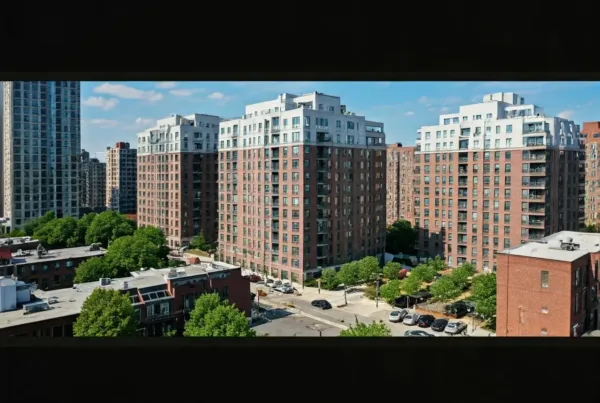Unlock the secrets of sponsor units in real estate – discover how these unique properties can benefit you as a buyer.
Table of Contents
Welcome to the world of real estate! Have you ever imagined owning your very first property, a cozy place you can call your own? Well, today we’re going to dive into the exciting world of real estate sponsors and sponsor units. But first, let’s start with a fun scenario: Imagine walking into your own home, with your favorite toys and books neatly arranged in your very own space!
What We’ll Learn
In this article, we will learn all about sponsors in real estate and what exactly a sponsor unit means. We’ll break down these concepts into simple terms so you can easily understand why they are important in the world of real estate. Are you ready to explore this fascinating topic? Let’s get started!
What is a Sponsor in Real Estate?
Defining a Sponsor
In real estate, a sponsor is a key player who initiates and oversees a project. This individual or entity takes on the responsibility of bringing a real estate deal to life. They are like the conductor of an orchestra, ensuring that all the pieces come together harmoniously.
Why Sponsors are Important
Sponsors are essential in real estate projects because they provide the vision, expertise, and resources needed to make things happen. They act as the driving force behind the development or renovation of a property, guiding the project from start to finish. Without sponsors, many real estate ventures would not come to fruition.
Understanding Sponsor Units
In the world of real estate, there are special types of properties known as sponsor units. But what exactly does this term mean, and how do sponsor units differ from other types of units? Let’s dive in and unravel the mystery of sponsor units in real estate.
What is a Sponsor Unit?
A sponsor unit is a property within a building or complex that is owned by the developer or sponsor of the project. These units are usually held by the sponsor for a period of time before they are sold to individual buyers. Sponsor units are often brand new and can offer unique features that set them apart from other units in the building.
How Sponsor Units are Created
When a real estate development project is underway, the developer sets aside certain units as sponsor units. These units may have special amenities or finishes that make them more desirable than other units in the building. The sponsor then has the option to sell these units to buyers, typically at a premium compared to other units in the same building.
Advantages of Sponsor Units
A sponsor unit can offer buyers unique advantages that may not be available with traditional real estate purchases. One of the main benefits for buyers is the potential for a lower purchase price compared to market rates. Because sponsor units are typically sold directly by the sponsor, buyers may have the opportunity to negotiate a more favorable deal.
Additionally, sponsor units often come with less competition than other types of properties, making it easier for buyers to secure their desired unit. This can be particularly beneficial in competitive real estate markets where finding the right property can be challenging.
Furthermore, sponsor units may have less stringent financial requirements for buyers, which can make them more accessible to a wider range of individuals. This can be especially helpful for first-time homebuyers or those looking to invest in real estate without facing high financial barriers.
Benefits for Sellers
For sellers, sponsor units can provide a quicker and more straightforward selling process. Since the sponsor is typically motivated to sell the unit quickly, sellers may benefit from a faster transaction compared to traditional sales.
Moreover, sellers of sponsor units may have more control over the sales process and negotiations. This can allow sellers to have a more direct impact on the terms of the sale and potentially secure a higher price for the property.
Additionally, sellers of sponsor units may have the advantage of less competition in the market, as sponsor units are often less publicized than other listings. This can lead to a smoother selling experience and potentially faster closing times.
Challenges with Sponsor Units
While sponsor units can offer great benefits, buyers may encounter some challenges when considering purchasing one. One common issue is that sponsor units are often sold “as is,” meaning the buyer gets the unit in its current condition without the option to negotiate repairs or upgrades. This can be a downside for buyers who prefer move-in ready properties or have specific renovation requirements.
| Sponsor Unit | Definition | Key Points |
|---|---|---|
| What is a Sponsor Unit? | A sponsor unit is a property within a condominium or cooperative building that is owned by the developer or sponsor of the building. | – Sponsor units are typically used to incentivize investors or insiders to purchase units in the building. – These units may have certain advantages, such as lower prices or unique layouts. |
| Sponsor Unit Rights | Sponsor units often come with certain rights that are not available to other unit owners in the building. | – The sponsor may have the right to rent out the unit without restrictions. – The sponsor may also have the ability to sell the unit without board approval. |
| Benefits of Sponsor Units | Investors or buyers of sponsor units can benefit from unique opportunities that are not available with regular units in the building. | – Lower purchase prices may be offered for sponsor units. – Sponsor units may have special features or layouts that are not available elsewhere in the building. |
Furthermore, sponsor units may not always be listed on the market for a long time, leading to a sense of urgency for potential buyers. This limited availability can put pressure on buyers to make quick decisions without thoroughly researching the property or considering all their options.
Seller Challenges
For sellers looking to sell a sponsor unit, there are also potential challenges to consider. One issue sellers may face is the need to comply with specific rules and regulations set by the sponsor or the building’s management. These requirements can sometimes restrict the seller’s ability to make changes to the unit or determine the timing of the sale.
Additionally, sellers of sponsor units may face competition from other units in the building that are not sponsor-owned. Buyers may compare sponsor units with traditional listings and be hesitant to commit to a sponsor unit due to perceived differences in terms or conditions.
Conclusion
In this article, we explored the world of real estate sponsors and sponsor units. We learned that sponsors play a vital role in real estate projects by overseeing, funding, and managing them. Sponsor units, on the other hand, are special units within a building that are owned by the sponsor.
Understanding sponsor units is essential for anyone looking to buy or sell properties, as it can affect the process and potential benefits. Knowing who the sponsor is and what a sponsor unit entails can make a significant difference in your real estate journey.
Final Thoughts
As you continue to learn about real estate and explore the possibility of owning property someday, remember the importance of sponsors and sponsor units. By grasping these concepts, you are better equipped to make informed decisions and navigate the real estate market with confidence.
Whether you are dreaming of your first home or considering an investment property, understanding sponsor units will give you the knowledge and insight you need to succeed in the world of real estate.
Frequently Asked Questions (FAQs)
What is a Sponsor in Real Estate?
A sponsor in real estate is an individual or company that initiates and organizes a real estate project. They are responsible for bringing together resources, such as financing and expertise, to make the project a reality. Sponsors play a crucial role in the development and success of real estate ventures.
What Does Sponsor Unit Mean?
A sponsor unit refers to a specific apartment or property within a building that is owned by the sponsor of the development. These units are typically sold by the sponsor and may have certain advantages and restrictions compared to other units in the building. The sponsor unit could be a unique opportunity for buyers interested in that particular property.
How Do Sponsor Units Affect Buyers?
Begin your search and start earning cash back!
When buyers consider purchasing a sponsor unit, they may encounter specific benefits and considerations. For example, sponsor units might offer attractive pricing or unique features that differentiate them from other units in the building. However, buyers should also be aware of any limitations or obligations that come with purchasing a sponsor unit, such as potential restrictions on renovations or financing requirements.







